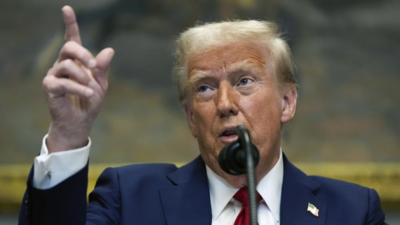In his first Oval Office interview since returning to power, US President Donald Trump suggested ending federal disaster relief and leaving states to handle emergencies on their own. Trump falsely accused the Federal Emergency Management Agency (FEMA) of failing to support victims, despite the ongoing wildfires in Los Angeles and the eastern United States still recovering from two devastating hurricanes.
“FEMA has not done their job for the last four years. You know, I had FEMA working really well. We had hurricanes in Florida, we had Alabama tornados,” Trump told Fox News. “But unless you have certain types of leadership, it gets in the way. And FEMA is going to be a whole big discussion very shortly, because I’d rather see the states take care of their own problems.”
Trump’s remarks came amidst a new wildfire outbreak north of Los Angeles, forcing tens of thousands to evacuate their homes in an area already affected by two deadly blazes. The president and Republicans in Congress have suggested that aid to California should be conditional on the actions of the state’s Democratic leaders, a stance not taken when storms caused destructive flooding and claimed over 100 lives in the US southeast.
The interview, conducted by Fox News star and loyal supporter Sean Hannity, showcased Trump’s distinctive style of engaging with the media, setting him apart from previous presidents, particularly Joe Biden, who rarely participated in detailed conversations with journalists. Trump discussed his executive orders, plans for the first 100 days, and defended his controversial pardons for hundreds of violent criminals who stormed the Capitol in 2021.
Despite the president’s accessibility, TV viewing figures for his second inauguration were significantly lower than in previous years, with a peak of 34.4 million viewers, a drop of four million from his first inaugural speech. The interview also touched on security concerns surrounding the Chinese-owned app TikTok and the possibility of cutting federal funds to “sanctuary cities” that protect undocumented migrants from federal detention requests.






